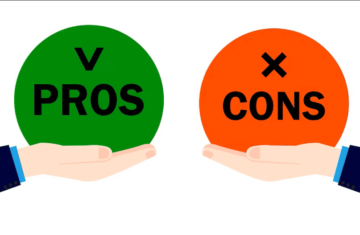Let’s look at some charisma tips for beginners to get you started on your journey of increasing your likability, influence, and relationships. You may have been searching for tips and tricks on improving your charisma, and if you would like to work with Sebastian straight away, you can schedule your very own discovery call below:
What is Charisma?
Charisma has long been misunderstood. The Greeks described it as a “Divine gift,” which unfortunately has created many misconceptions about charisma, leading people to believe it’s some kind of “supernatural power.” It’s not true. Charisma is a range of soft skills that can be learned and applied in real situations. Soft skills include:
- Communication
- Body language
- Conversations
- Storytelling
- Humor
- First impressions
- Rapport building
- Leadership
- Emotional intelligence
- Confidence
Charisma Tips

Body Language
A key element of charisma is being able to project positive body language and read others’ physical language. These basics are necessary for anyone seeking charisma tips for beginners and can be immediately applied.
Eye Contact
Making eye contact with someone is the quickest way you can begin to build your charisma. Eye contact releases a hormone in someone’s brain called Oxytocin, known as the “trust-building” hormone. By making eye contact, you will project confidence and build trust with others.
Smiling
A genuine smile can be contagious. Not only does it make you feel positive, but it also projects confidence to other people. As a beginner, you really want to get the basics right before you experiment with more advanced techniques, and a genuine smile is the best place to start.
Hand Gestures
The easiest way a beginner can improve their charisma is to incorporate hand gestures into their conversations. Not only do they convey information that is easier for the other person’s brain to process, but hand gestures can also create trust between people. If your audience cannot see your hands, it makes it difficult to trust you.
Conversations

Active Listening
Active listening is not just nodding along to what someone is saying, saying ‘Hmmm, Oh WOW.’ Active listening involves not only hearing the words they are saying but also picking up on how they are saying it and how they deliver the words. If someone is describing their day to you in a low tone, with unimpressed facial expressions, and using phrases like “It was OK,” you can gather that their day wasn’t as exciting as it could have been.
Follow-Up Questions
As a beginner to charisma, you are looking for techniques you can use immediately in conversation, and asking great follow-up questions is the perfect way to increase your charisma. You want to pick follow-up questions that draw out more information to learn about the person while also moving the conversation on. The two phrases you want to use in your follow-up questions are “Tell me” and “Why,” such as:
- Tell me why did you pursue a career in finance?
- Why did you decide to move to the UK?
- Tell me what’s the biggest challenge you face in your job?
- Why did you get interested in football in the first place?
It’s a simple way to delve a little deeper with others and boost your charisma.
Open Questions
Related to follow-up questions, you want to be able to use open questions rather than closed questions. A closed question is a question that gives a yes or no response, such as:
- Did you pick up the takeaway?
- Did you get parked OK?
- Do you know David?
- Has the catering arrived?
You want to use open questions, which are questions that start with What, How, and Why, such as:
- Why did you pick that takeaway?
- How did you find parking here?
- Why was there a delay with the catering?
These make the other person give a more detailed answer than yes or no, which will help you when it comes to your follow-up questions.
Getting Others to Open Up
The goal in conversations is to get the other person to open up. You can tell when other people are opening up to you when they appear more relaxed, give more detail in answers, ask you questions, and generally act warmly toward you. The easiest way you can get someone to open up is to get them to talk about themselves.
When you first meet someone, you don’t know anything about them, so the best place to start is to get them talking about themselves, such as:
- Where are they from?
- What are their hobbies or interests?
- What do they do for work?
- What do they study?
- How do they know people at this party or event?
The Friendship Formula

One of the basics you will need to understand is the friendship formula. This is how you can build deep relationships with others. The formula is:
Friendship = Proximity + Frequency + Duration + Intensity.
As far as charisma tips for beginners go, this is perhaps one of the simplest strategies you can use to increase the quality of the relationships you have. Please see below the breakdown of each:
Proximity
This is how close you are to the space of the people you want to build a relationship with. If you are a CEO, how close are you to your team? Are you on the same floor and visible, or are you on the top floor secluded from everyone? If you want to speak to someone at a networking event, are you visible to them or at the bar on your phone?
By getting within someone’s proximity, you can give the person friendly non-verbal cues to begin to develop a relationship with them. This could be:
- A wave
- A smile
- A nod
- An eyebrow raise
- A thumbs up
All within the proximity of the person you are looking to build a relationship with.
Frequency
This relates to how often you see that person. People who you see more frequently can build up a subconscious friendliness towards you. This is because the more we see a person, the more familiar they become to us.
Duration
This might be obvious, but I was fascinated by Schafer’s examples. The longer time we spend with someone, the better we can build a relationship. “Like a fine wine, relationships do get better with time.” It’s worth noting that if you see someone regularly (High frequency), you do not need to spend a long duration with that person. If you are catching up with a friend who you have not seen in years, then a long catch over dinner is appropriate. However, for a friend you see every other day for coffee, a quick catch-up is more than enough.
Intensity
This factor looks at how well we can satisfy the needs of someone else during the time spent together through verbal and nonverbal communication. Time spent engaged in conversation or shared experiences has a much greater intensity level and the chance of leading to a friendship than spending the same amount of time focused on our phones.
Conclusion
In conclusion, the journey to developing charisma involves mastering a combination of skills, from effective communication and active listening to fostering meaningful relationships. Charisma, often misunderstood as a divine gift, is, in fact, a set of soft skills that can be honed and applied in real-life situations. By focusing on elements such as body language, eye contact, genuine smiles, and engaging conversations, beginners can begin to enhance their likability, influence, and relationships.
Furthermore, the art of asking insightful follow-up and open-ended questions, along with encouraging others to talk about themselves, plays a crucial role in establishing rapport and fostering connections. Understanding the friendship formula, which incorporates aspects like proximity, frequency, duration, and intensity, can significantly contribute to the quality and depth of relationships.
By implementing these fundamental charisma tips, individuals can lay a strong foundation for building trust, establishing meaningful connections, and ultimately cultivating a charismatic presence in both personal and professional spheres. Remember, charisma is not solely an innate trait but a skill that can be developed and refined over time with consistent practice and genuine interpersonal engagement. So, take these tips, apply them diligently, and watch your charisma flourish as you connect with others on a deeper, more authentic level.



